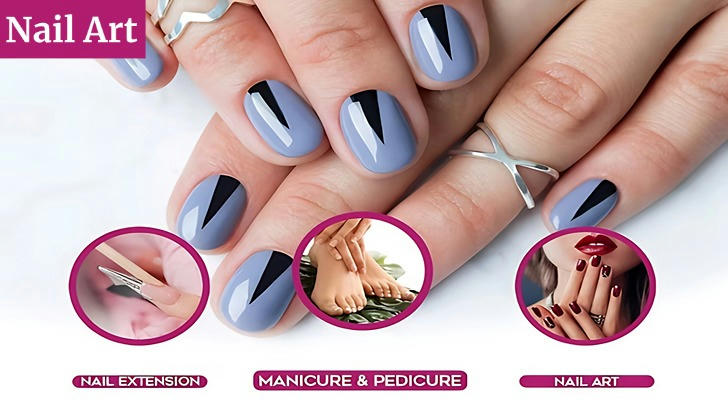How to become a professional manicurist? A complete guide to core skills, training options and career development
The nail industry continues to develop, and more and more people choose to achieve career growth and stable income through professional nail care services. It is very important for those who are interested in entering this field to understand the key skills, training course options and career development directions required to become a professional manicurist. The following content will help you systematically understand the core elements of the nail industry and plan your future career path.

I. Basic content of nail care services
**1. What items are included in nail care? **
Professional nail care covers a number of services such as nail trimming, nail repair, gel manicure, carved design and hand skin care. The service content is rich to meet the diverse needs of different customers.
2. The importance of technology and tools
Manicurists need to master basic manicure, painting design, phototherapy gel application and other technologies, and strictly abide by disinfection and hygiene regulations to ensure service safety and quality.
II. Entry requirements for becoming a professional manicurist
1. Basic skills learning
Beginners should systematically learn basic manicure techniques, including nail trimming, grinding, polishing and basic coloring. Familiarity with the use of professional tools and materials is a necessary skill.
2. Certificates and training
Participating in professional manicure training courses and obtaining relevant certificates will help improve professionalism and customer trust. The training content usually covers theoretical knowledge, operating specifications and health and safety standards.
3. Practical experience accumulation
Accumulate practical operation experience through internships or assistant positions to improve technical proficiency and customer service capabilities.
III. Key factors affecting the income of manicurists

1. Technical level
Manicurists with skilled and diverse skills can provide more services and charge accordingly. Mastering popular painting, carving and light therapy techniques can help attract more customers.
2. Customer resource management
A stable customer base is the basis for sustained income. Manicurists should focus on maintaining customer relationships and use social media and word-of-mouth recommendations to expand their customer network.
3. Service quality and reputation
High-quality service experience helps customers return and recommend, and improves market competitiveness.
IV. Career development path in the nail care industry
1. From assistant to senior nail artist
Most nail artists start as assistants and are promoted to senior nail artists after accumulating experience, taking on more complex design and care tasks.
2. Store manager and trainer positions
Manicurists with management and teaching capabilities can be promoted to store managers or trainers to expand their career development space.
3. Opportunities for self-employment
After accumulating a certain amount of customer resources and industry experience, some nail artists choose to open personal studios or nail salons to achieve independent operation.
V. Suggestions for choosing nail training courses
1. Comprehensive course content
Preferentially choose courses covering basic care, painting design, phototherapy technology and health and safety to ensure comprehensive skills.
2. Teachers and practical opportunities
Experienced instructors and rich practical links can help improve learning effects and practical operation capabilities.
3. Certificate recognition
Choose training institutions and certificates recognized by the industry to enhance professional competitiveness.
4. Course fees and schedule
Choose a suitable course rhythm and fee according to your own time and financial situation to ensure smooth completion of learning.
VI. Market prospects for nail care services
1. Industry demand growth
As consumers pay more attention to nail care, the demand for professional nail services continues to increase, and the market potential is significant.
2. Diversified customer groups
Customers of different ages and professional backgrounds have different needs for nail services, and personalized services have become a development trend.
3. Technological innovation promotes development
The application of new materials and technologies continues to enrich the content of nail services and improve the overall level of the industry.

To become a professional nail technician, you need to systematically learn core skills, accumulate rich experience and continuously improve service quality. Reasonable selection of training courses and clear career planning will help to steadily develop in the nail industry and achieve career goals. Mastering industry dynamics and technological trends will provide strong support for future career paths.
